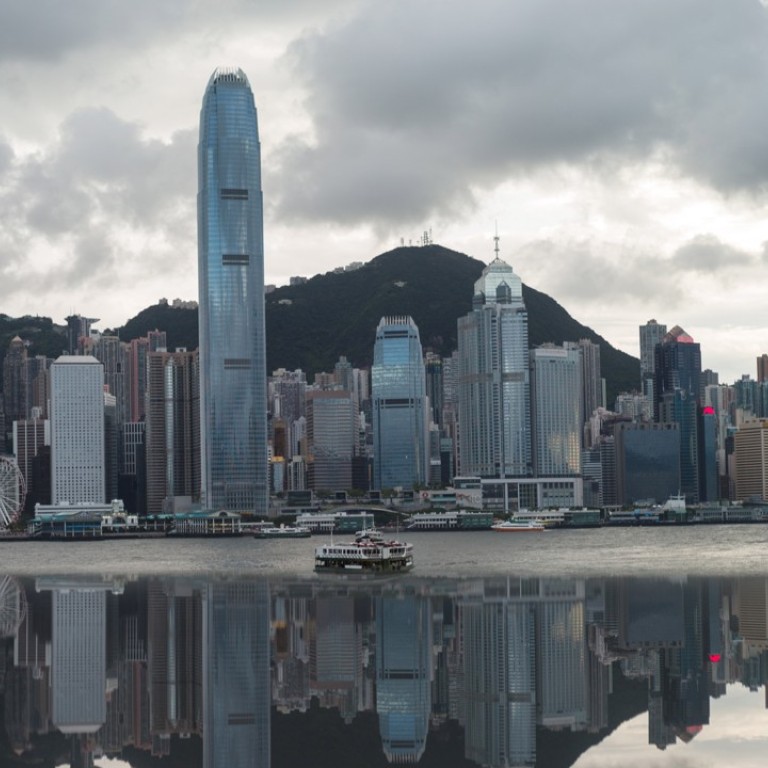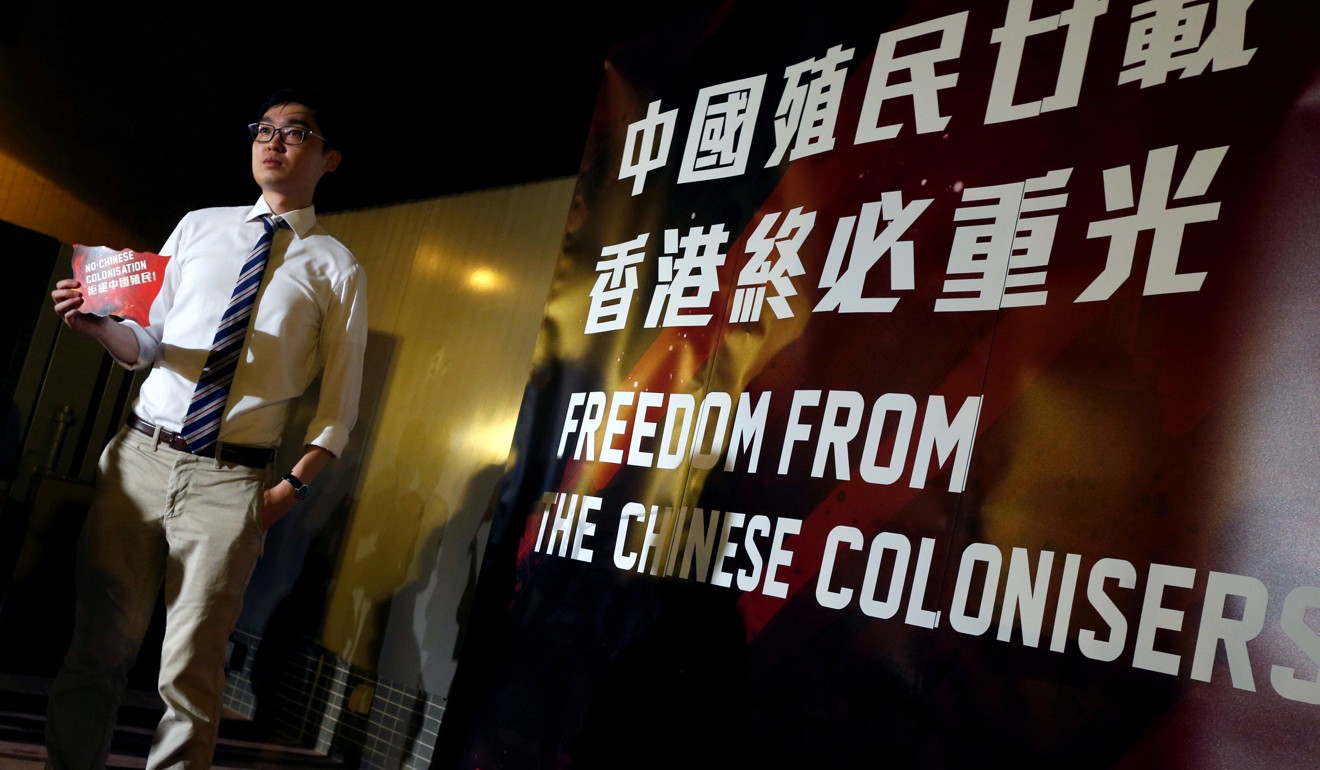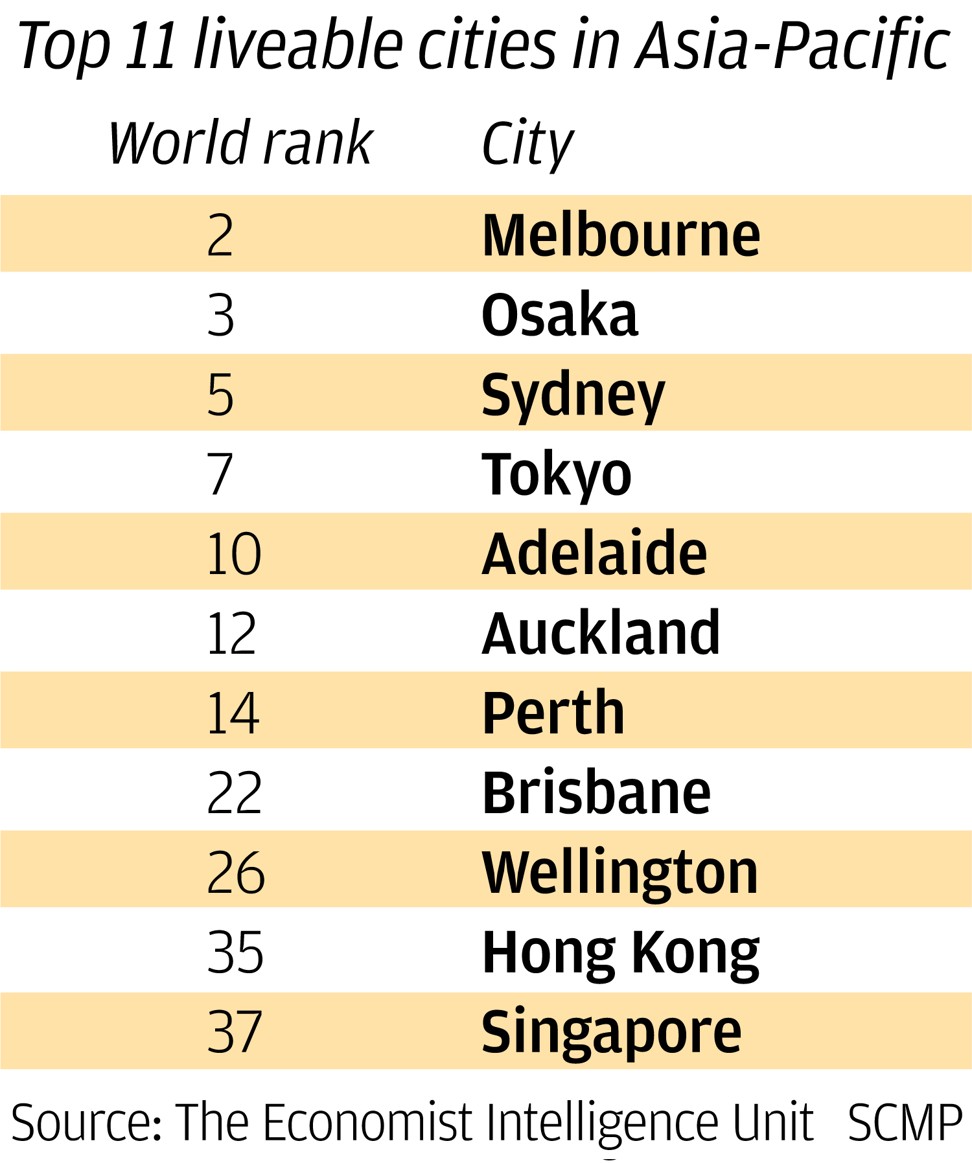
Hong Kong reclaims lead over Singapore in global liveability rankings as ‘social unrest drops’ four years after Occupy
Lion City falls two places to 37th spot, while Hong Kong climbs from 45th to 35th this year
Hong Kong has reclaimed its lead over Singapore in liveability rankings, climbing 10 places in an annual global survey which attributed the score to lower levels of social unrest four years after the pro-democracy Occupy movement rocked the city.
But an analyst warned of increased political censorship in Hong Kong, adding that Beijing’s hardline stance against independence advocacy could lead to less freedom of speech, which would cause companies to leave for greener pastures.
The latest study by the Economist Intelligence Unit, a British-based research and analysis group, ranked Hong Kong at 35th – up from 45th last year – which is two places ahead of the Lion City. Singapore is at 37th this year, dropping two spots from last year’s 35th.
Singapore beats Hong Kong in liveability rankings for first time
In the survey last year, Singapore beat Hong Kong for the first time on the back of improvements in education.
Simon Baptist, global chief economist and managing director of the unit in Asia, said the tale of two cities involved varying factors such as stability, culture and environment, education, health care and infrastructure.

“There is censorship in both places: but the type of thing that is censored is different in each,” he said.
“Censorship in Singapore has more of an effect on everyday life than it does in Hong Kong. The trend in both places is increasing censorship, although in the long run I would expect censorship to get stronger in Hong Kong.”
In the long run I would expect censorship to get stronger in Hong Kong
He said while Hong Kong’s censorship centred on criticisms of the Communist Party, in Singapore, apart from political issues, other social elements such as LGBT rights were also targeted.
He warned of the possibility that companies might move out of Hong Kong if in the long run, mainland China exerts its control over the city and restricts freedom of speech. “There are some long-term risks for Hong Kong if everybody is subject to [mainland rules].”
The study polled 180 cities worldwide and found Vienna the most liveable, followed by Melbourne, Osaka, Calgary and Sydney.

Of the 10 most liveable cities in the Asia-Pacific region, five are in Australia (Melbourne, Sydney, Adelaide, Perth and Brisbane), two in New Zealand (Auckland and Wellington) and two in Japan (Osaka and Tokyo).
Is liveability a luxury forever out of reach for ordinary Hongkongers?
On the rivalry between Hong Kong and Singapore, Baptist said the former did better on cultural and environmental issues, while the latter excelled in housing supply and health care services.
“The rivalry has been long-lived, but they have found their own niche,” Baptist said.
He said Hong Kong’s future was entwined with China’s, and its function would be increasingly aimed at the provision of services to the mainland.
“The [regional role] of Hong Kong will become smaller, and Singapore is [becoming the choice of Asia-Pacific headquarters for multinational companies] because of its quality of life.”



